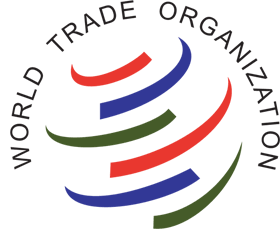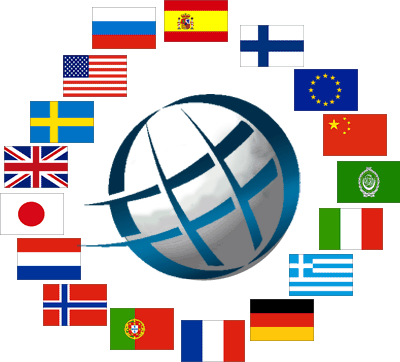Economics 101: The Benefits and Drawbacks of Licenses
 •
by
•
by batterytime
The Benefits and Drawbacks of Licenses

Export licenses: to buy or not to buy? At a price tag of 20 gold a license, it's quite steep to purchase one. So when should you buy one? When is it worth it to plunk down that 20 gold, just for the opportunity to sell in another country?
Why are export licenses useful at all?
Export licenses are quite useful in situations where you can export to a country where the price is a lot higher than you could sell at normally. Such an example happened with the wood industry. I had a Q3 wood company here in the US, and bought an export license to Romania. The price of wood in Romania was 30% higher than the price in the US, so that 30% became pure profit for me when I sold it there.
However, that is not to say that you should go out and buy a license to any old country where the price is higher. We have to consider two major things: taxes and ROI rate. (Return On Investment)

Taxes: Foreign VAT and Import Duties
All countries charge different tax rates. One country may have a VAT (Value Added Tax) of 8% on weapons, (like the US) while another might have a VAT of 1%. The VAT is the first tax that we have to consider. VAT applies ONLY to manufactured goods and houses, not raw materials. Raw materials always have a VAT of 0%, and cannot be changed.
VAT makes it so that the consumer has to pay that extra tax, along with the rate that you are selling it at: if you were selling a moving ticket for 10 USD, and VAT was 10%, the consumer would buy it for 11 USD, of which 1 USD would go to the US government coffers. That being said, you have to watch out for the VAT tax rate if you're trying to buy a export license. If the country SEEMS to have higher market prices, it might not in reality, since they're VAT may be 30% compared to your native 10%.
The other major tax is import tax. All countries also have the right to set a import tax, which is charged on top of VAT, but ONLY for companies not based in that country. If Spain had a import tax of 10% on weapons, all Spainish companies would be unaffected by such a tax, but an American weapons company with an export license to Spain has to pay that extra 10%. These also add up if you're not careful, as import taxes might be very steep in some places. Even if the market price there is 50% more than what you get regularly, if they have a import tax of 99% on that, that 50% extra is rendered worthless.

Taxes: The Big Picture
All in all, you should look at the TOTAL TAX on your good when exported to some country. The "total tax" is a very simple calculation: just add together the VAT and import tax of that particular type of good in that country. Once you have that total tax, you can find the selling value of your good by dividing the market price by the total tax rate+1. If the total tax rate for weapons in Spain was 17%, then you'd divide the market price of a weapon in Spain by 1.17, and that'd be how much money you get. Compare that number to the domestic market price divided by the domestic VAT, and you'll be able to see whether selling in that country is profitable.

Return on Investment: The Effect of Time
While you might be celebrating after reading the last section and finding a country where you'd be able to export and make more profits, HOLD ON before rushing out there and buying. You have to also consider how quickly you'll be able to get that money back.
If exporting to that country would get you 0.6 gold profits, while you get 0.5 gold profits selling at home, that means you're only getting 0.1 gold more profits after buying that export license. That means, at a license cost of 20 gold a piece, it would require 200 days before you got enough extra profits to just break even on your license. That's a LONG time before you could break even, that 20 gold would probably make more money simply sitting in a bank.
You might also be thinking "Batterytime, that's not true, since when I sell the company, I can sell it for more because I have an extra license!" Well, that's true, but it's a common misconception regarding licenses: the resale value of a license is very low. Very few people will put a large premium on a company with extra licenses, usually paying about 5 or less gold at most for each extra license. Licenses simply aren't worth as much on resale, because of the high price of them in the first place: a lot of people would rather get a no license company and use that 20 gold for something else. This brings us to...

Why NOT to be Like This Company (or at least why I would not do it)
http://www.erepublik.com/en/company/minerva-airlines-q1-180553
The above company is a Q1 ticket company with 11 licenses, not including the original Italian domestic license. Those 11 licenses cost a whopping 220 gold to buy, and I doubt that it'll will ever make 220 gold in any reasonable amount of time from those licenses to offset the cost of all of them.
I see lots of less extreme cases where people run out and buy a bunch of licenses, like 3 or 4, and I myself am a staunch opponent against such a practice. Your goods after all, can only be sold once. Having 4 licenses doesn't mean you get profit off of each one, since you'll only profit off of the most lucrative one by selling there. True, some markets may be too small to absorb all of your stock, so having a few licenses can work if each country can only buy half your stock a day, but then you have to consider that you're spending 40 or 60 gold instead of 20 in your ROI calculations. It's in my opinion that getting more licenses than 3 or 4 total (including your original) is wasteful and overkill, since you're not going to be able to benefit from each one.
~Batterytime
Economics 101 is an ongoing series of articles about topics in eRepublik economics. This is issue #2.
PREVIOUS ISSUES
#1: Vertical Integration: Mistakes, Misconceptions, and Benefits


Comments
FIRST DENIED.
>_>
Great article though.
Good info! V+S
I liked this article. Votat.
+1
Nice article
V+S
Don't forget your romanian allies
http://www.erepublik.com/en/article/help-eromania-help-eden-usa--1093323/1/20" target="_blank">http://www.erepublik.com/en/article/help[..]/1/20
Excellent article, Batterytime!
Lt. Scheisskopf
http://www.erepublik.com/en/newspaper/stars-and-stripes-journal-191155/1" target="_blank">http://www.erepublik.com/en/newspaper/st[..]155/1
Such a fantastic article!
Good stuff!
I take two approaches to buying licenses:
1)For profit: Perform the due diligence on the ROI, like you mentioned above. Then, run the company for profit in the one export market. A well-researched company should have no more than one export license. Granted, situations change (i.e. tax hikes, embargoes, war), but they're the exception to the rule where you would need to maybe pick up another license.
2)For speculation: Buy a company in a war-zone. For example, I bought a wood company in Manitoba (high region) when it was Hungarian-controlled for 15 gold. The US liberated it, so I bought the US license for 5 gold. Then the US turned Manitoba back to Canada, and I bought the Canadian license for 5 gold. That gave me a company with 3 export licenses (granted, one was useless) for 25 gold. I then sold it two weeks later for 35 gold.
P.S. The Romanian wood market was flooded with new companies in the past month, and the profits there are now only slightly above break-even.